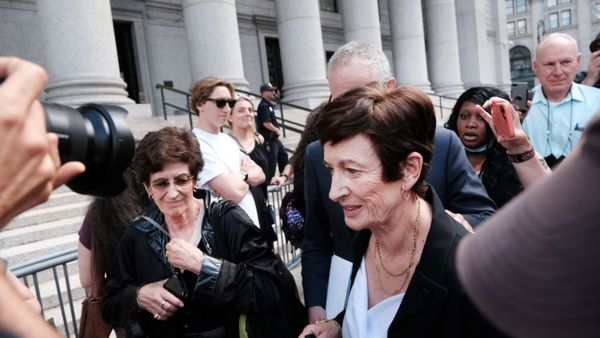
One of the founders of Spain’s far-right Vox party has been shot in the face in Madrid.
Alejo Vidal-Quadras – a political veteran who had also spent time as the regional leader in Catalonia of the conservative People’s Party (PP) – was shot in the wealthy Salamanca area of central Madrid at about 1.30pm on Thursday. Spanish police said they were hunting two men in connection with the shooting, who were riding a black Yamaha motorbike. The gunman, who was wearing a helmet, stopped and got off to shoot Mr Vidal-Quadras. After the shooting, both men escaped on the motorbike.
Police said Mr Vidal-Quadras was in a serious condition in hospital, but he is believed to be stable. Spanish newspaper El Mundo reported that he had been fired on from a few metres’ distance. However, it is not thought that the life of the veteran politician is in immediate danger.
Mr Vidal-Quadras was also a member of the European parliament before he broke away to help create Vox. He left the party – currently the third-largest force in the lower house of the Spanish parliament – in the wake of a failed bid to win a European seat in 2014.
The current leader of the People’s Party, Alberto Nunez Feijoo, called for a thorough police investigation. Spain’s acting prime minister, Pedro Sanchez, said: “I want to convey my solidarity and wishes for a speedy recovery to Alejo Vidal-Quadras. All my affection at this time for him and his family.”
A motive has not been established for the shooting.
The incident came hours after Mr Sanchez had sealed a controversial deal that is expected to clinch him another term in office after his Socialist Party (PSOE) secured the backing of Catalan separatists Junts to form a government. A promise to pass a law granting amnesty to those who were prosecuted over Catalonia’s failed attempt to secede from Spain in 2017 was included in the deal.
It has met with fierce condemnation from Mr Sanchez’s conservative opponents, who have organised large protests and accused him of putting the rule of law in Spain on the line for his own political gain. Mr Vidal-Quadras had branded it an “infamous pact”, while PP spokesperson Cuca Gamarra said Spain was looking at “a shameful and humiliating deal”. The mayor of Madrid, Isabel Diaz Ayuso, said the Socialists were “selling a nation with centuries of history” by way of an attack on Spain’s rule of law.
Santos Cerdan, a senior Socialist Party official who led the negotiations, told a press conference in Brussels that while his party still had “profound disagreements” with Junts, there was a need to produce a “stable government”.
An amnesty could exculpate as many as 1,400 activists and politicians who were involved in the attempt to separate Catalonia from Spain.
Among the beneficiaries of an amnesty would be Carles Puigdemont, the Junts leader currently living in exile in Waterloo, Belgium, because of charges he is facing as leader of Catalonia during the separatist drive that came to a head in a vote and a unilateral declaration of independence in 2017.
If the amnesty is approved by congress, Mr Puigdemont would be able to return to Spain and potentially run for office.
Mr Puigdemont hailed the agreement between Junts and the Socialists as a “change of narrative” and a step towards resolving a “historic conflict” between Spain and the region. Mr Puigdemont told a press conference in Brussels that the amnesty offered reparation for what he described as “political persecution” by Madrid, and a guarantee that it would not be repeated.
He said Catalans neither had to recognise that they had committed any crimes as they agitated for independence in mass demonstrations, votes and a unilateral independence declaration, nor apologise for what had happened – something the Socialists had originally insisted on in negotiations.
Mr Sanchez is trying to form a government after an election in July resulted in no outright winner. He reached a deal to govern in coalition with the hard left Sumar platform last month, but also needs several other smaller parties – who have supported him in the past – to back him in an investiture vote that could take place as soon as next week.
The Socialists are still falling short of an absolute majority of 176 seats to win a first-round vote in the 350-seat congress, or to secure a simple majority in a second vote. They still need the support of five members of the Basque Nationalist Party (PNV), which offered early support but said it would wait to see the details of a Socialist-Junts deal before confirming.
The vote has to be concluded by 27 November or fresh elections will be triggered.
Reuters contributed to this report







